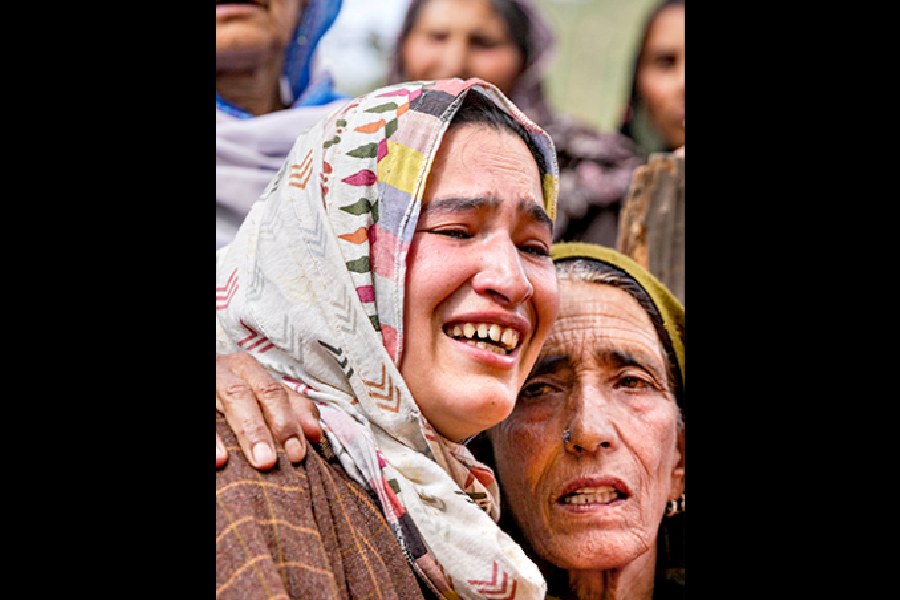A team of the National Investigation Agency, led by an inspector-general, reached Pahalgam on Wednesday to probe possible security lapses that led to the terror attack and the role of insiders or locals, if any, sources said.
The anti-terror agency will also assist local police in investigating the militant strike in which 26 people, mostly tourists, were killed on Tuesday.
The NIA team visited Baisaran Meadow, the site of the attack, on Wednesday.
“The NIA has been asked to look into the possible lapses leading to the intrusion of the suspected Pakistani terrorists. The federal agency team will also provide help to the local police in probing the case,” said a home ministry official, requesting anonymity.
The official declined to comment on whether there was any intelligence failure.
The NIA is already conducting a probe into a terror-funding case in Kashmir.
A former lieutenant general told The Telegraph that the Pahalgam strike was a “cold-blooded” and “targeted attack”.
“Contrary to the Centre’s claims, the attack proves that all is not well in Kashmir. It also speaks volumes about how it was a cold-blooded and targeted attack,” he said, adding Pakistan was further exposing itself by orchestrating such attacks in the region.
In January, Indian Army chief General Upendra Dwivedi had said Pakistan was the “epicentre” of terrorism and the cycle of violence in Jammu and Kashmir was being “orchestrated” from that country.
He had, however, described the situation in the Union Territory as “firmly” under control and noted that the ceasefire agreement with Pakistan along the Line of Control “continues to hold, though infiltration attempts persist”.
A former director-general of the BSF said the political leadership should order a probe into how Pakistani terrorists managed to infiltrate into the Indian side of the border and carry out such attacks at their will.
“We still do not know how the Pulwama attack happened. The government has not yet fixed accountability. More than six years have passed, but serious questions about intelligence failures are still left unanswered by the government,” he said.
Forty CRPF jawans were killed on the Srinagar-Jammu highway in Kashmir’s Pulwama on February 14, 2019, after a Jaish-e-Mohammed suicide bomber rammed his car into their convoy. The Pulwama attack brought India and Pakistan to the brink of war and was followed by cross-border air strikes by both countries.
The NIA filed a chargesheet in August 2020, 18 months after the Pulwama attack, that named 19 accused. Eight of the accused have since then been killed in alleged encounters. A special NIA court in Jammu is hearing the case. Seven others, all locals, are in jail. The remaining four accused — Jaish-e-Mohammad chief Masood Azhar, Abdul Rouf, Ammar Alvi and Ashiq Nengroo — are still in Pakistan or Pakistan-controlled territory.
The NIA court has requested Pakistan for judicial assistance in collecting evidence and transferring it to India.











